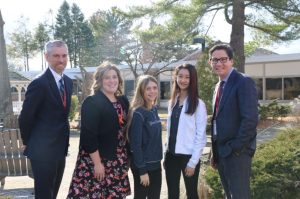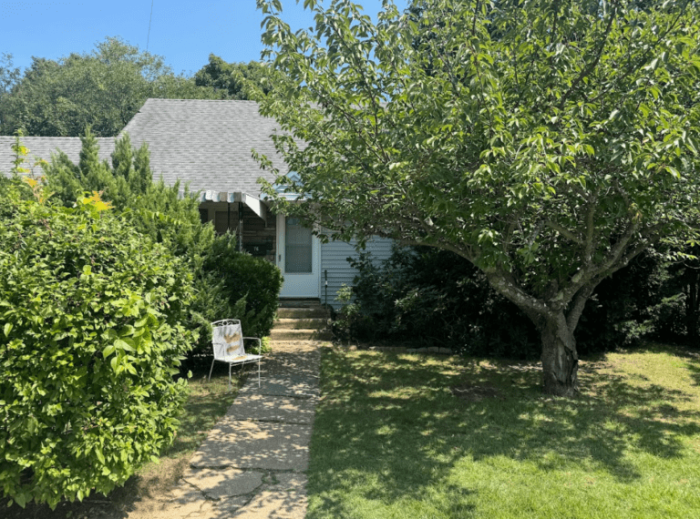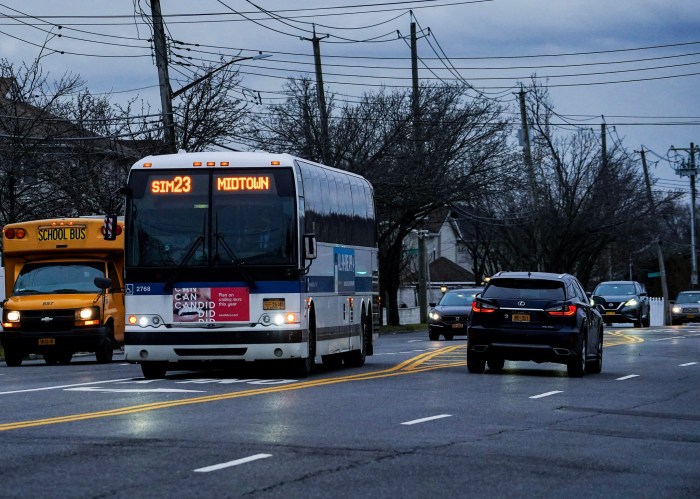
(Photo courtesy of the Syosset School District)
Syosset High School seniors Hailey Edelman and Michelle Li were just named 2020 Regeneron Science Talent Search (Regeneron STS) scholars. The Regeneron STS is the nation’s oldest and most prestigious pre-college science competition.
These students were selected from 1,993 U.S. and international entries and they each will receive a $2,000 award with an additional $2,000 going to the high school to support STEM education. They are among 300 students named Regeneron STS scholars and hope to be among 40 finalists named later this month. The scholars were selected based on their exceptional research skills, commitment to academics, innovative thinking and promise as scientists.
“I am extremely proud of the dedication and passion these young ladies display for their research,” Syosset High School research facilitator Veronica Ade said. “They are both outstanding scientists, and future leaders in STEM.”Edelman conducted her research project, “Exploring the Role of Cannabidiol in a Caenorhabditis elegans Model.”
Epilepsy is a progressive neurological disease characterized by recurrent seizures affecting people of all ages worldwide. Individuals afflicted with epilepsy whose seizures are not well controlled by the 24 anti-epileptic medications approved by the FDA are deemed drug resistant. Epidiolex (CBD) was approved by the FDA in 2018 for the treatment of seizures as cannabidiol components of cannabis have been shown to have anti-convulsive effects, yet the pathway in which CBD inhibits seizure activity is unknown. Cannabidiol has been shown to affect various pathways of inflammation including the adenosine and tumor necrosis factor alpha pathway. To further explain the protective effects of cannabidiol in mitigating seizure activity, the adenosine and TNFa inflammatory pathways were tested by culturing nematodes with adenosine and TNFa antagonists and agonists. Further understanding the mechanisms of action of cannabidiol will allow for greater therapeutic implications for the 65 million people impacted by epilepsy.
Li conducted her research project, “Linarin and Luteolin Elicit Anti-amyloid-beta Cytotoxicity and Inflammation Properties as Novel Treatments for Alzheimer’s Disease,” at SUNY Old Westbury, mentored by Dr. Wei Zhu. Alzheimer’s disease (AD) is a dementia-associated neurodegenerative disease characterized by plaques of deposited amyloid-beta proteins and tangles of tau protein fibers. Synthetic AD treatments often have adverse side effects, prompting the need for natural treatments. This study examined linarin and luteolin, two plant-derived substances, as potential natural AD treatments. Linarin and luteolin treatments, individual and combined, were tested on the survival rates of murine neuronal and immune cells to investigate their neuroprotective effects against amyloid-beta. The effects of these substances against Aβ on the cell counts of human neuronal cells, as well as the amyloid precursor protein (APP) concentration in human neuronal cells and the pro-inflammatory interleukin-1-beta concentration in murine immune cells were investigated.
Results demonstrated that linarin and luteolin increased cell survival against amyloid-beta, indicating protective properties against amyloid-beta toxicity. They have also been shown to decrease the concentrations of APP and interleukin-1-beta in amyloid-beta-treated cells, indicating that they decrease both the source of amyloid-beta plaques and inflammation causing proteins. Therefore, while both linarin and luteolin have been shown to have neuroprotective properties against amyloid-beta toxicity, which make them promising AD treatments, they have not demonstrated synergistic effects that would make the combined substances a promising treatment.
The 40 finalists in the competition, to be named on Jan. 22, will travel to Washington, D.C., where they will undergo a rigorous judging process, interact with leading scientists, display their research for the public, meet with national leaders, and compete for more than $1.8 million in awards provided by Regeneron.






























